News
BIOSPHERIC PRODUCTIVITY OF CHINA DESERTS
Climate alarmists are continually warning about the potentially-catastrophic negative consequences of CO2-induced global warming, which they contend will wreak havoc with Earth's natural and agro-ecosystems. In this summary we thus review how deserts have fared throughout China in response to rising air temperatures and atmospheric CO2 concentrations, which climate alarmists characterize as unprecedented over thousands of years (in the case of temperature) to millions of years (in the case of CO2 concentration).
We begin with the work of Brogaard et al. (2005), who studied the dry northern and northwestern regions of the country - including the Inner Mongolia Autonomous Region (IMAR) - which had been thought to have experienced declining vegetative productivity over the past few decades due to "increasing livestock numbers, expansion of cultivated land on erosive soils and the gathering of fuel wood and herb digging," which practices were believed to have been driven by rising living standards that in combination with a growing population were assumed to have increased the pressure on these marginal lands. In the case of increasing grazing, for example, Brogaard et al. note that the total number of livestock in the IMAR increased from approximately 46 million head in 1980 to about 71 million in 1997.
To better assess the seriousness of this supposedly "ongoing land degradation process," as they describe it, the researchers adapted a satellite-driven parametric model, originally developed for Sahelian conditions, to the central Asian steppe region of the IMAR by including "additional stress factors and growth efficiency computations." The applied model, in their words, "uses satellite sensor-acquired reflectance in combination with climate data to generate monthly estimates of gross primary production." And to their great surprise, this work revealed that "despite a rapid increase in grazing animals on the steppes of the IMAR for the 1982-1999 period," their model estimates did "not indicate declining biological production [italics added]."
Clearly, some strong positive influence compensated for the increased human and animal pressures on the lands of the IMAR over the period of Brogaard et al.'s study. In this regard, they mention the possibility of increasing productivity on the agricultural lands of the IMAR, but they note that crops are grown on "only a small proportion of the total land area." Other potential contributing factors they mention are "an increase in precipitation, as well as afforestation projects." Two things that are not mentioned are the aerial fertilization effect and the transpiration-reducing effect of the increase in the air's CO2 concentration that was experienced over the study period. Applied together, the sum of these several positive influences (and possibly others that remain unknown) was demonstrably sufficient to keep plant productivity from declining in the face of greatly increasing animal and human pressures on the lands of the IMAR from 1982 to 1999.

More News
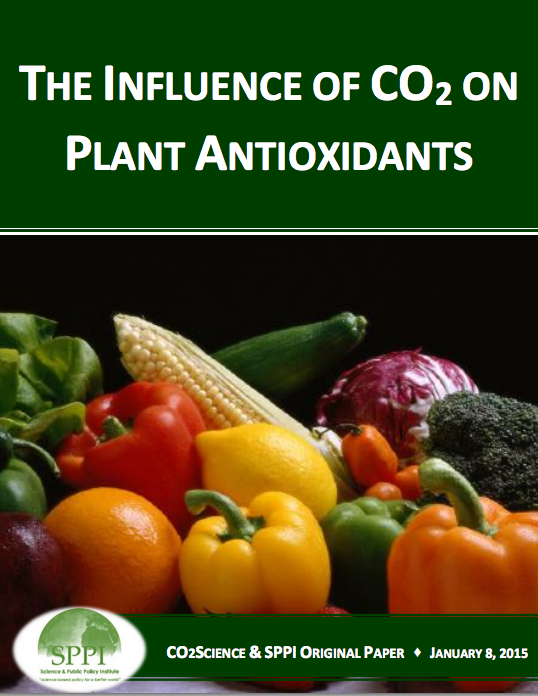
The Influence of CO2 on Plant Antioxidants
Center for the Study of Carbon Dioxide and Global Change. "The Influence of CO2 on Plant Antioxidants.” Last modified January 8, 2015. http://www.co2science.org/subject/a/summaries/antioxidants.php.
Released On: 1/16/2015
Views: 6501
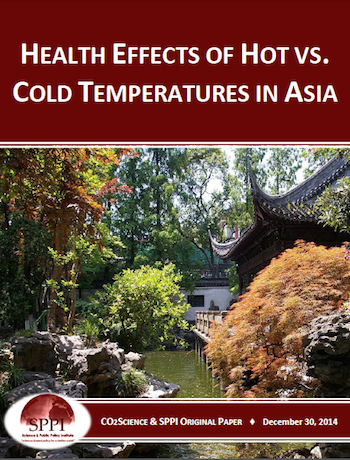
Health Effects of Hot Vs Cold Temperatures in Asia
Health Effects of Hot Vs Cold Temperatures in Asia.
Released On: 1/5/2015
Views: 6736
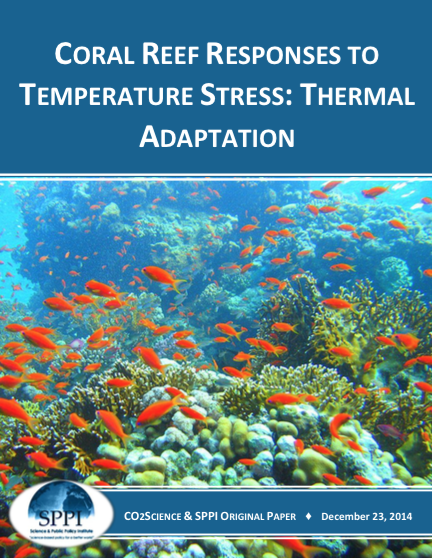
Coral Reef Responses to Temperature Stress: Thermal Adaptation
Coral Reef Responses to Temperature Stress: Thermal Adaptation. As living entities, corals are not only acted upon by the various elements of their environment,they also react or respond to them.
Released On: 12/29/2014
Views: 6368

Forest Growth Response to CO2
Forest Growth Response to CO2. By examining various properties of tree rings, researchers can deduce how historical increases in the air's CO2 concentration have already affected tree productivity and water use efficiency.
Released On: 12/29/2014
Views: 4995

Onward Marches the Great Pause
Onward Marches the Great Pause. Since October 1996 there has been no global warming at all (Fig. 1).
Released On: 12/29/2014
Views: 4036

RESPONSE OF VARIOUS MARINE ANIMALS TO OCEAN ACIDIFICATION AND WARMING
RESPONSE OF VARIOUS MARINE ANIMALS TO OCEAN ACIDIFICATION AND WARMING.
Released On: 12/8/2014
Views: 3693

FACE EXPERIMENTS AND GRASSLAND SPECIES
FACE EXPERIMENTS AND GRASSLAND SPECIES.
Released On: 12/8/2014
Views: 4268

EFFECTS OF OCEAN ACIDIFICATION ON FISH
EFFECTS OF OCEAN ACIDIFICATION ON FISH.
Released On: 12/8/2014
Views: 4283

Response of Fish to Ocean Warming
Response of Fish to Ocean Warming. According to the IPCC, CO2-induced global warming will be net harmful to the world's marine species.
Released On: 11/21/2014
Views: 4192

Long-Term Open-Top-Chamber Study of Sour Orange Trees
Long-Term Open-Top-Chamber Study of Sour Orange Trees. Eight 30-cm-tall sour orange tree (Citrus aurantium L.) seedlings were planted directly into the ground at the Agricultural Research Service's U.S. Water Conservation Laboratory in Phoenix, A ...
Released On: 11/21/2014
Views: 4221
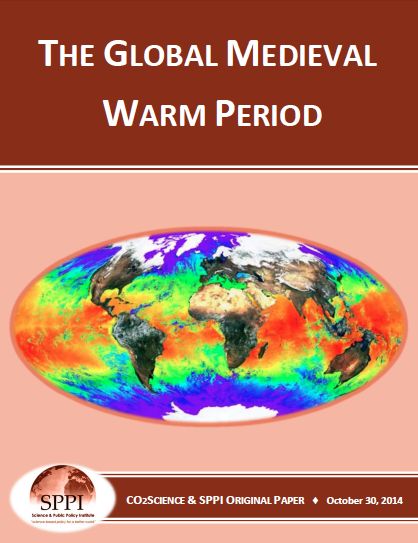
The Global Medieval Warm Period
The Global Medieval Warm Period. Between the 10th and 14th centuries AD, earth's average global temperature may have been warmer than it is today.
Released On: 11/21/2014
Views: 4036
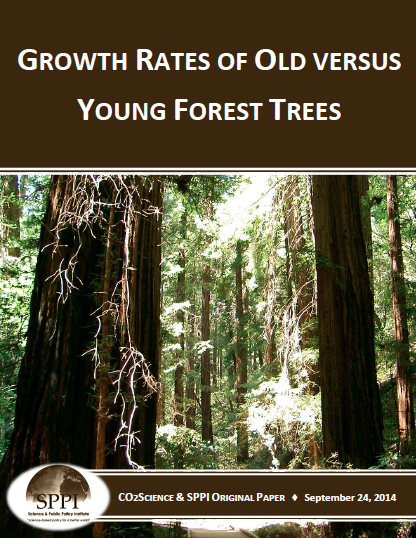
Growth Rates of Old versus Young Forest Trees
Growth Rates of Old versus Young Forest Trees. The planting and preservation of forests has long been acknowledged to be an effective and environmentally-friendly means for slowing climate-model-predicted CO2-induced global warming.
Released On: 9/30/2014
Views: 4298
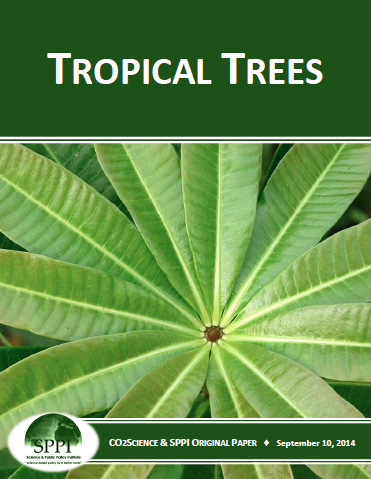
Tropical Trees
Citation: Center for the Study of Carbon Dioxide and Global Change. "Tropical Trees.”
Released On: 9/30/2014
Views: 4362
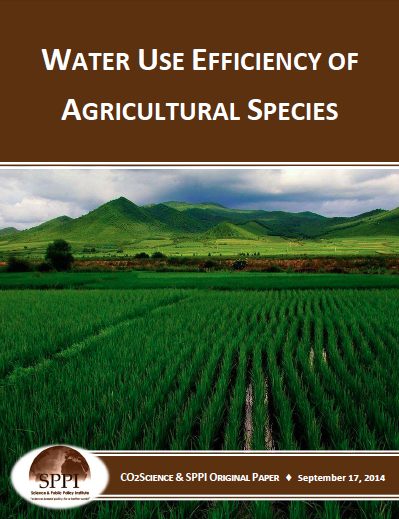
Water Use Efficiency of Agricultural Species
Water Use Efficiency of Agricultural Species.
Released On: 9/30/2014
Views: 4246
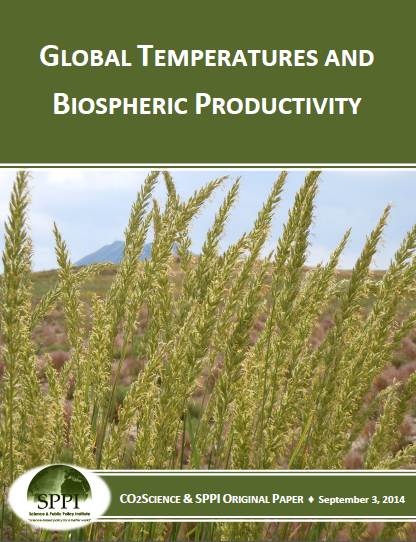
GLOBAL TEMPERATURES AND BIOSPHERIC PRODUCTIVITY
Global temperatures and biospheric productivity. Among the many climate-alarmist fears of CO2-induced global warming is the concern that the productivity of the biosphere will decline if global temperatures rise to the extent predicted by compute ...
Released On: 9/13/2014
Views: 4229
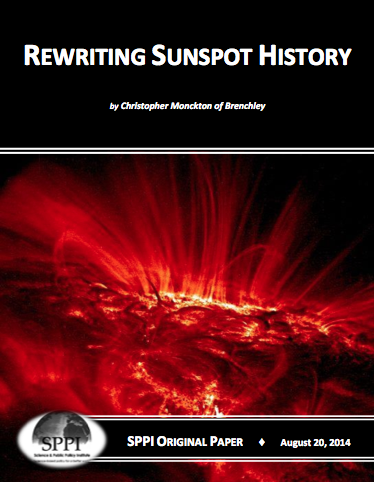
REWRITING SUNSPOT HISTORY
Rewriting sunspot history. In 2006, when I first made the mistake of writing publicly of my doubts about the Party Line on manmade global warming.
Released On: 9/13/2014
Views: 4290
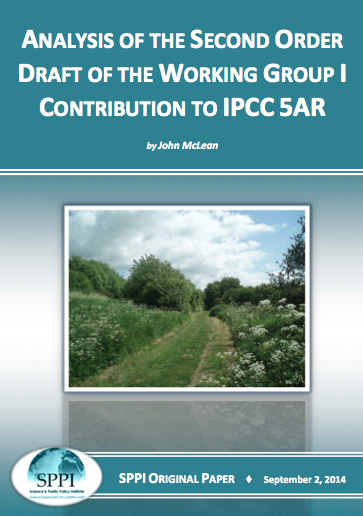
ANALYSIS OF THE SECOND ORDER DRAFT OF THE WORKING GROUP I CONTRIBUTION TO IPCC 5AR
ANALYSIS OF THE SECOND ORDER DRAFT OF THE WORKING GROUP I CONTRIBUTION TO IPCC 5AR. The preparation of IPCC Assessment Reports involves several stages.
Released On: 9/13/2014
Views: 4105
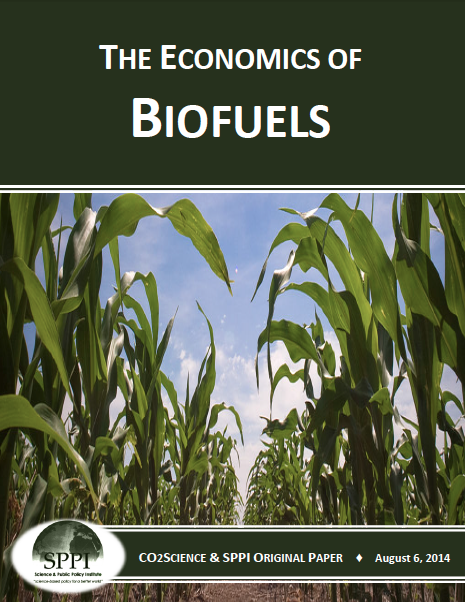
THE ECONOMICS OF BIOFUELS
The economics of biofuels. Aside from rejecting biofuel expansion and use for environmental reasons.
Released On: 9/13/2014
Views: 3950



